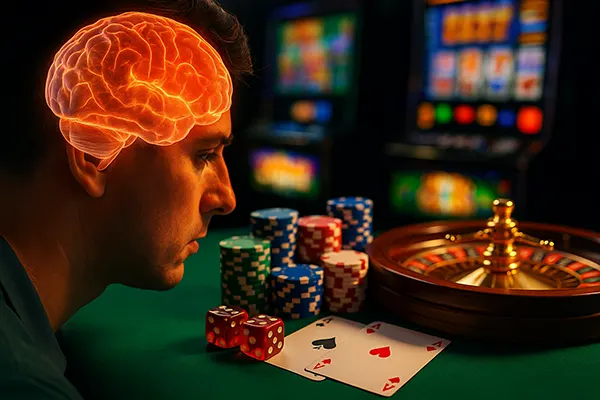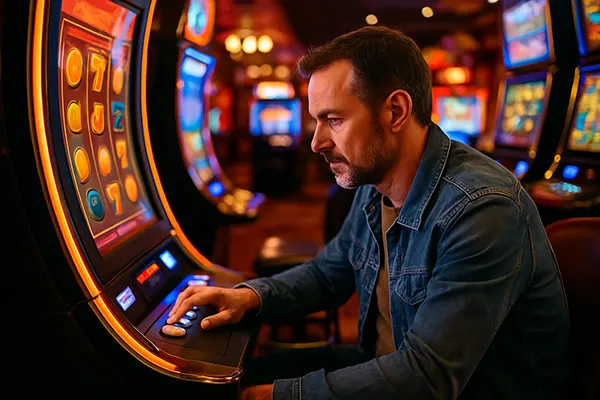Gambling and Dopamine: How the Brain Reacts to Play and How to Avoid Addiction

Games of chance trigger a powerful response in the human brain. While winning brings intense satisfaction, repeated play can develop patterns that go beyond entertainment. In this article, we explore how dopamine affects behaviour during gambling, how this response develops over time, and what steps can be taken to maintain healthy habits.
The Brain’s Reaction to Gambling
When people engage in gambling activities, the brain releases dopamine — a neurotransmitter associated with pleasure and reward. Unlike other rewarding activities, gambling is unpredictable, which amplifies dopamine production. This variability tricks the brain into believing that something exceptional is happening, reinforcing the desire to continue.
Even near-misses — results that almost lead to a win — trigger a dopamine spike. This leads players to perceive a loss as “almost winning,” which can be just as stimulating as an actual win. Over time, the brain adapts to these bursts and starts seeking them more frequently.
The randomness and frequency of rewards in gambling can therefore create a powerful loop. Each spin or card dealt gives the brain a small reward or a sense of anticipation, and this cycle can become deeply ingrained with repeated play.
The Role of the Reward System
The brain’s reward system is designed to reinforce survival behaviours such as eating and social bonding. Gambling, however, hijacks this system. Each uncertain outcome, especially if it results in a win, further strengthens the association between gambling and pleasure.
Repeated exposure can desensitise the brain’s response to natural rewards, such as food or social interaction. Instead, it prioritises gambling stimuli, as they produce a stronger and more immediate dopamine release.
Studies using brain imaging show that problem gamblers exhibit higher dopamine reactivity compared to non-gamblers. This means the more someone gambles, the stronger their brain is wired to crave it — not unlike how substance addiction alters reward sensitivity.
Signs of Problematic Gambling Behaviour
While occasional play may seem harmless, it’s important to recognise signs of potentially harmful behaviour. One red flag is a persistent desire to continue gambling even after a series of losses. This is often driven by a false belief in “being due” for a win — a cognitive distortion that ignores statistical reality.
Another key indicator is emotional reliance on gambling. If someone uses gambling to cope with stress, anxiety, or sadness, they’re more likely to fall into unhealthy patterns. Financial secrecy, borrowing money, or neglecting responsibilities are further symptoms that the hobby may have become a compulsion.
Finally, tolerance and withdrawal symptoms can occur. People may need to gamble with higher stakes to feel the same level of excitement, or become irritable and restless when they try to stop. These are hallmark signs of behavioural addiction.
Risk Factors and Vulnerable Groups
Individuals with underlying mental health conditions such as depression or ADHD are more susceptible to developing gambling issues. Impulse control problems and poor emotional regulation contribute to repeated risky behaviours.
Adolescents and young adults are also at increased risk. Their reward systems are still developing, and they may be more prone to thrill-seeking or peer pressure. Additionally, those who grow up in households where gambling is normalised are more likely to adopt similar behaviours.
Genetics and environment interact in complex ways. Having a family history of addiction — whether gambling or substance use — increases the likelihood of compulsive gambling due to inherited vulnerabilities in dopamine regulation.

Preventive Strategies and Responsible Gambling
Maintaining a healthy relationship with gambling requires self-awareness and clear boundaries. Setting strict time and spending limits is one of the most effective strategies. Once a limit is reached, it’s crucial not to chase losses or exceed personal rules.
Taking regular breaks and engaging in other rewarding activities — like sports, social interaction, or hobbies — can help balance dopamine responses and reduce overreliance on gambling. Mixing recreational habits reduces the brain’s fixation on a single source of stimulation.
Additionally, using available responsible gambling tools, such as self-exclusion options and reality checks, supports conscious decision-making. Many online services now offer personal insights and usage trackers to help players stay in control of their habits.
Seeking Support When Needed
If gambling starts to negatively impact well-being, reaching out for help is a sign of strength, not failure. Counselling, behavioural therapy, and peer support groups can provide guidance and accountability. These services often focus on changing thought patterns and building healthier coping mechanisms.
Organisations such as GamCare (UK) or Gambling Therapy offer free and confidential resources tailored to different needs. Whether it’s one-on-one therapy or group discussions, the key is to interrupt the pattern before it deepens.
Family and friends also play a critical role. A strong support system can reinforce positive behaviour and provide emotional backup during vulnerable moments. Open conversations about the risks and effects of gambling make it easier to address the issue early on.
